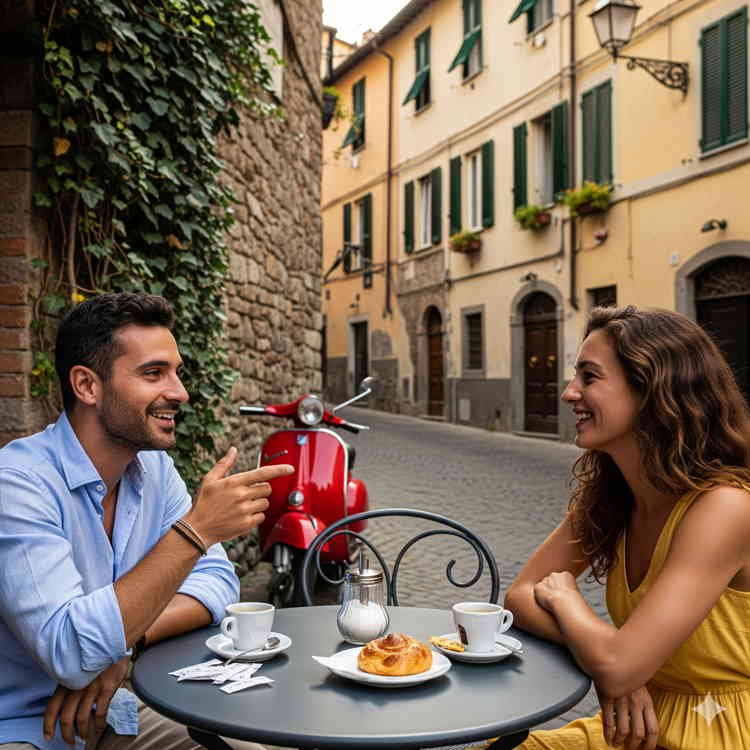
If you’ve ever studied Italian or spent some time in Italy, chances are you’ve come across the word magari. To the untrained ear, it may sound simple—just another word to memorize. But for Italians, magari is much more than a filler. It’s an expression loaded with meaning, grammar, and cultural nuance. In this article, I’ll explore what makes magari so special, why it often calls for the subjunctive, and how you can use it like a native speaker.
What Does Magari Mean?
The short answer: it depends. Magari is a wonderfully flexible word, and its meaning changes depending on context. Here are the three most common uses:
- Expressing a wish or desire
- Magari vincessi la lotteria! → If only I won the lottery!
This is where the subjunctive mood comes in. The speaker knows the wish is unlikely, but uses magari to dream out loud.
- Magari vincessi la lotteria! → If only I won the lottery!
- Meaning “maybe” or “perhaps”
- Magari domani andiamo al mare. → Maybe tomorrow we’ll go to the beach.
In this case, magari is a softer, more hopeful version of forse.
- Magari domani andiamo al mare. → Maybe tomorrow we’ll go to the beach.
- Used as “yeah, sure” (sometimes ironically)
- Vuoi un altro caffè?
- Magari! → Of course! / I’d love one!
- Vuoi un altro caffè?
That’s three functions packed into a single word. No wonder learners find it tricky!
Why Is Magari So Italian?
1. It Lives in the Subjunctive
The Italian subjunctive mood (congiuntivo) is famous for being both beautiful and intimidating. When paired with magari, it captures the essence of Italian thought: hopeful, emotional, and a little dramatic. English speakers usually just say I wish, but Italians flavor the wish with grammar that highlights uncertainty.
2. It Reflects the Italian Attitude to Life
Italians are known for optimism, imagination, and sometimes a touch of irony. Magari mirrors all of this in one word. Whether you’re dreaming big, hedging your bets, or answering playfully, magari lets you express that uniquely Italian way of balancing hope with realism.
3. It’s Culturally Ubiquitous
You’ll hear magari in movies, songs, everyday conversations, and even political speeches. It works across regions and generations, from a teenager texting friends to a nonna commenting on tomorrow’s weather.
How to Use Magari Like a Native
- Dream big with the subjunctive
- Magari potessimo viaggiare di più. (If only we could travel more.)
- Magari potessimo viaggiare di più. (If only we could travel more.)
- Soften your “maybe”
- Magari ci vediamo più tardi. (Maybe we’ll see each other later.)
- Magari ci vediamo più tardi. (Maybe we’ll see each other later.)
- Respond with enthusiasm
- Ti va un gelato?
- Magari!
- Ti va un gelato?
The key is context. Italians rely on tone, gesture, and situation to let magari shine.
Why Learners Should Love Magari
Mastering magari is more than memorizing vocabulary. It’s about entering the emotional rhythm of the Italian language. With one word, you can sound hopeful, ironic, polite, or enthusiastic. It’s a shortcut to sounding more natural, and it gives you access to the kind of everyday Italian that textbooks often overlook.
Final Thoughts
So, is magari really the most Italian word in the world? Many would say yes. It captures three core aspects of Italian life: the richness of the subjunctive mood, the cultural tendency toward optimism, and the joy of expressing nuance in everyday speech.Next time you’re speaking Italian, don’t be shy—drop a magari into your conversation. Use it to dream, to hedge, or simply to say yes, please. It’s not just a word; it’s a window into the Italian soul.
If you found this article useful, don’t forget to share it with the world and to like our Facebook Page!
Credits:
Image by Gemini





 Mamma mia! How to Use Italian Exclamations Without Sounding Like a Tourist
Mamma mia! How to Use Italian Exclamations Without Sounding Like a Tourist

